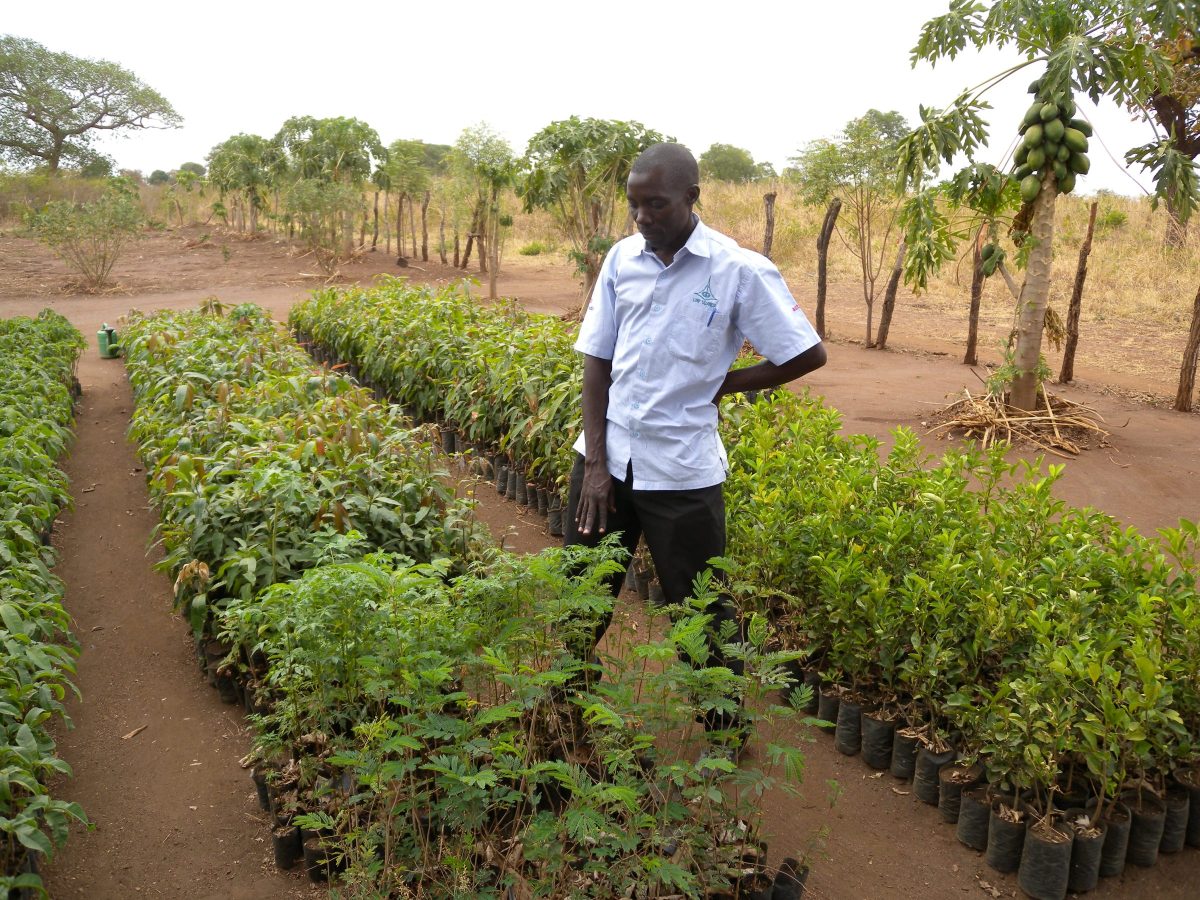Environmental Conservation Project Kitgum District (2009)

November 30, 2009
This project in Kitgum district of northern Uganda aims to support environmental rehabilitation around Internally Displaced Persons’ (IDP) camps and in return areas through promoting the implementation of environmentally friendly activities.
Kitgum district has been affected by a 20 year conflict between the Lord’s Resistance Army (LRA) and the government of Uganda. Over 90% of the residents in Kitgum were uprooted and moved into IDP camps. This concentrated population put tremendous pressure on ecologically fragile lands around the camps, leading to land exhaustion. Overgrazing, poor farming techniques, repetitive cropping, and the practice of slash-and-burn for opening up land for crop production led to erosion and depletion of soil. Trees in and around the IDP camps were indiscriminately cut and drastically diminished to clear land for crop production, timber, firewood and other domestic use.
Increased security in recent years has led to many IDPs returning home. Since leaving their homes, much of the land in Kitgum became fallow. As the returnees resettle and begin re-opening their land again, it is anticipated that with poor farming practices and inadequate extension services, soil fertility will be rapidly depleted. Also, as cattle populations return to pre-conflict numbers, traditional herdsmanship practices may contribute to overgrazing and erosion of fragile soils.
This program will build school ECO-Club activities – teaching environmental management and conservation practices, planting quick growing varieties of seeds, and establishing school vegetable gardens and woodlots. Pupils will also be encouraged to practice kitchen gardening in their homes as a way to address nutritional problems. The environmental conservation message will be disseminated through dramas, competitions and songs with environment-related themes. Progress of the woodlots and vegetable gardens established by the school will be monitored and progress tracked by students, teachers and LWF.
The project will work in areas of return and in five primary schools in the Kitgum district. Two of the schools were supported in the previous project; therefore capacity building will be built into the project to ensure sustainability.
One thousand farmers who are able to plant trees and fruit seedlings and ensure their survival will also be selected to participate in the project. Major aspirations for the project are to build the capacity of the local community to improve their livelihoods while lessening the negative environmental impact.
Results
During the project, 1 tree nursery was established in Omiya Anyima Sub County. The purpose of the central tree nursery is to increase access to tree seedlings and serve as a learning point for the schools and communities. 9,777 seedlings have been produced and 2,300 distributed to schools.
5 school eco clubs in 5 primary schools were also formed in Omiya Anyima Sub County. In order to increase adoption and information dissemination on environmental conservation practices, the members have been supported with 400 improved citrus seedlings to plant and manage in their individual homes so that other community members can learn and copy what these children are doing in schools. Along with that, 5 school woodlots and 5 orchards were established in 5 primary schools.
The project provided 20 farmer groups and 5 primary schools with assorted improved vegetable seeds and established 5 demonstration kitchen gardens. The farmer group members have acquired knowledge and skills in vegetable farming and have started to replicate their learning in their homes. 200 (102 female, 98 male) students were trained and supported to practice kitchen gardens.¥
5 child rights awareness sessions were conducted for 200 students in 5 primary schools. In addition, 10 teachers and environment committees were trained on agro forestry development and agronomy.
“I did not even believe this is possible but with the help of LWF through the training, I am now competent and have knowledge on good practices of vegetable management.” (Alfred Okongo)